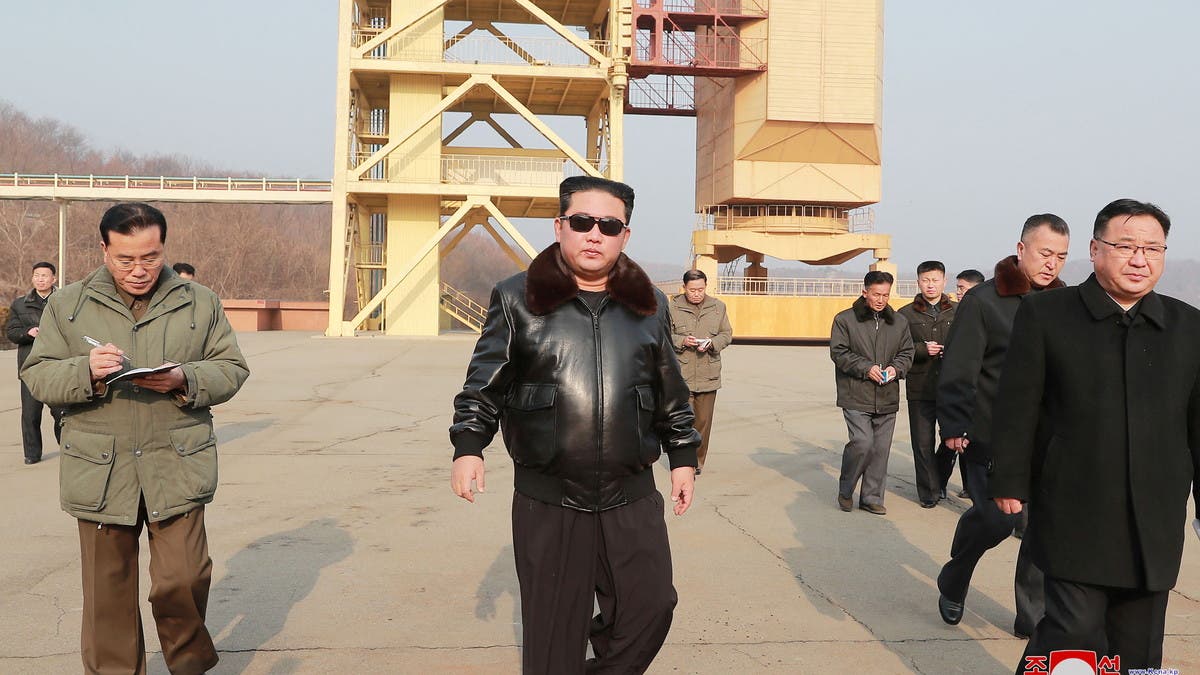North Korea fired an “unknown projectile” on Wednesday which appeared to fail immediately after launch, South Korea’s military said, amid reports that the nuclear-armed North is seeking to test-fire its largest missile yet.
The United States and South Korea have warned that North Korea may be preparing to launch an intercontinental ballistic missile (ICBM) at full range for the first time since 2017.
For the latest headlines, follow our Google News channel online or via the app.
The projectile was fired from Sunan Airport outside the North Korean capital of Pyongyang, South Korea’s Joint Chiefs of Staff (JCS) said in a statement.
“It is presumed that it failed immediately after launch,” the statement said. The projectile seemed to explode in mid-air shortly after liftoff, Yonhap news agency reported, citing unnamed sources.
The US military’s Indo-Pacific Command called it a “ballistic missile launch.” The command did not mention the reported failure but condemned the launch and urged Pyongyang to refrain from further destabilizing acts.
A source at Japan’s Ministry of Defense also called the projectile a potential ballistic missile, Japanese public broadcaster NHK reported.
Debris fell in or near Pyongyang after the failed test, Seoul-based NK News reported, citing unnamed witnesses and a photograph of the test showing a red-tinted ball of smoke at the end of a zig-zagging rocket launch trail in the sky above the city.
“The report of a failure from Sunan is concerning because of the possibility of damage to heavily populated civilian areas,” said Ankit Panda, a senior fellow at the US-based Carnegie Endowment for International Peace.
In 2017, an intermediate-range ballistic missile launched from another location failed shortly after liftoff and crashed into an industrial or agriculture complex in the city of Tokchon.
The Sunan airport has been the site of several recent launches, including on Feb. 27 and March 5. North Korea said those tests were for developing components of a reconnaissance satellite and did not identify what rocket it used, but Seoul and Washington said they were tests of a new ICBM system.
Series of new missile tests
Reclusive North Korea has fired missiles at an unprecedented frequency this year, conducting its ninth weapons test on March 5, drawing condemnation from the United States, South Korea and Japan.
The USS Abraham Lincoln aircraft carrier led military exercises in the Yellow Sea, and air defense artillery at Osan air base in South Korea intensified drills in response to the increased North Korean missile activity, US forces in Asia said on Tuesday.
The new ICBM system, the Hwasong-17, was unveiled at a military parade in 2020 and reappeared at a defense exhibition in October 2021.
The February 27 and March 5 launches did not demonstrate the missile’s full range, and analysts said the North might have used only one stage of the missile or adjusted its fuel volume to fly at lower altitudes.
The Hwasong-17 would be North Korea’s largest ICBM yet, and the government appears to be restoring some tunnels at its shuttered nuclear test site, US and South Korean officials said last week.
North Korea has not tested an ICBM or nuclear bomb since 2017, but has said that it could resume such testing because denuclearization talks with the United States are stalled.
Regional response
US National Security Adviser Jake Sullivan and China’s top diplomat Yang Jiechi discussed North Korea in Rome on Monday during talks that focused on Ukraine.
A senior US official said the two discussed ensuring there would soon be follow-up talks to earlier discussions between US Special Representative for North Korea Sung Kim and his Chinese counterpart, Liu Xiaoming, on ways to press Pyongyang to drop its nuclear weapons program.
The official said Washington had “serious concerns about the recent escalatory actions” by North Korea and Sullivan made clear to Yang the steps the United States believed to be necessary.
Last week, the United States and 10 other countries bemoaned the failure of the UN Security Council – where China has veto power – to condemn North Korea’s repeated missile launches, saying this eroded the credibility of the council and the global non-proliferation regime.
Washington imposed fresh North Korea-related sanctions on Friday, targeting Russian individuals and companies after the two recent launches.
Past US punitive steps and international sanctions at the United Nations have failed to arrest North Korea’s weapons development.
Russia and China, which backed UN sanctions after North Korea’s last ICBM and nuclear tests in 2017, have since argued that sanctions should be eased to encourage dialogue.
Read more:
South Korea sees imminent prospect of North ICBM test: Report
North Korea accused of testing ICBM system and restoring tunnels at nuclear test site
North Korea's Kim says spy satellites to monitor actions by US and its allies

 World3 years ago
World3 years ago
 World3 years ago
World3 years ago
 Business1 year ago
Business1 year ago
 Entertainment7 years ago
Entertainment7 years ago
 World7 years ago
World7 years ago
 Entertainment7 years ago
Entertainment7 years ago






